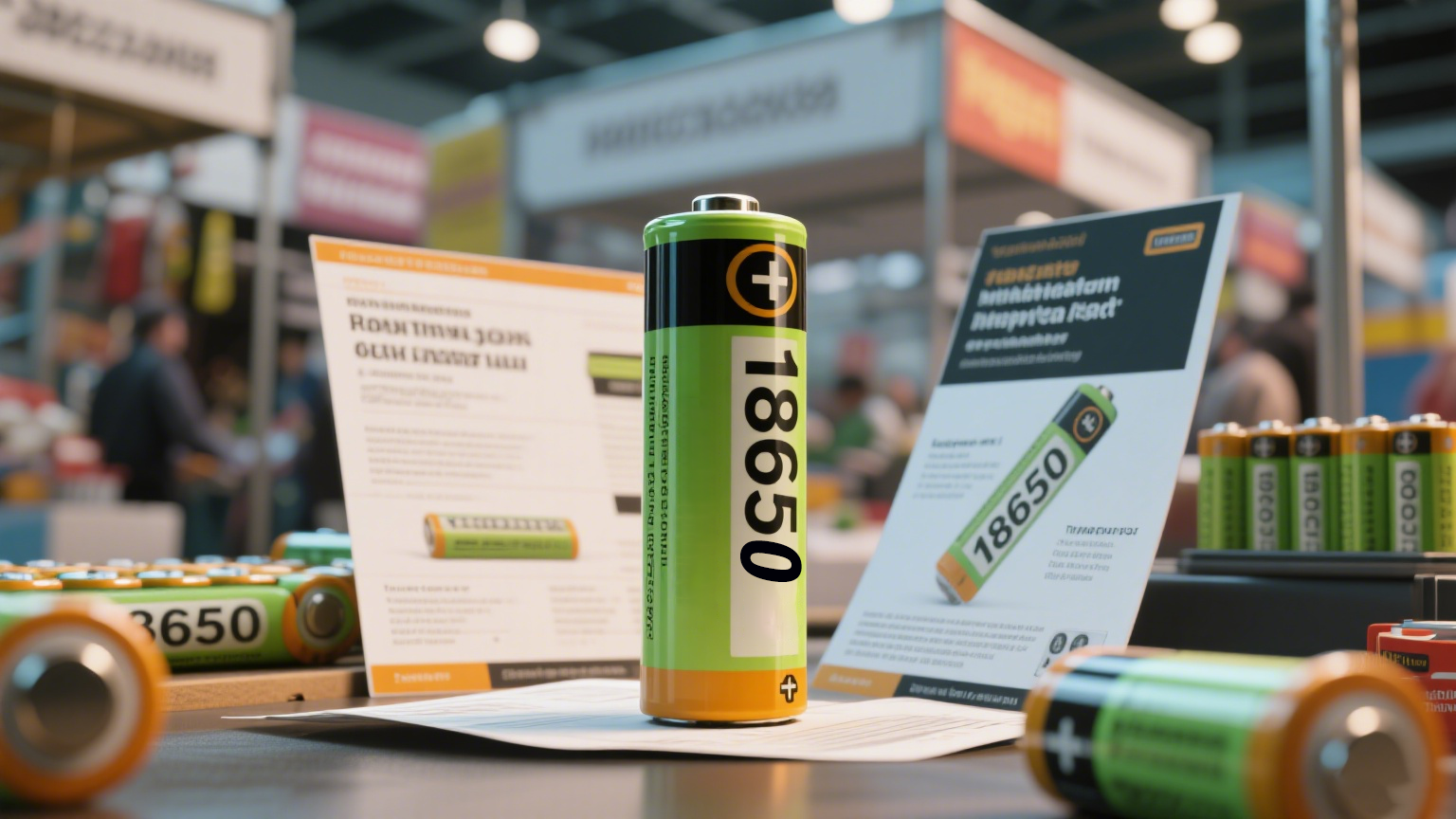The global new energy industry is rapidly developing, and the demand for rechargeable batteries continues to rise. The 18650 Cell Rechargeable Batteries, with its excellent performance and wide applicability, has become a hot product in the international market, attracting attention from various sectors, including 3C electronics, power tools, and energy storage equipment.
What is the 18650 Cell Rechargeable Battery?
The 18650 rechargeable battery is a typical representative of cylindrical lithium-ion batteries. It has a standard single-cell voltage of 3.7V, with capacity typically ranging from 1800mAh to 3500mAh. Some high-end products can even exceed 4000mAh. The working principle is based on the reversible intercalation and de-intercalation of lithium ions between positive and negative electrode materials, achieving efficient conversion of electrical energy and chemical energy through redox reactions. Compared to traditional nickel-cadmium and nickel-metal hydride batteries, the 18650 battery’s energy density is 2 to 3 times higher. It offers a cycle life of 500 to 1000 times, with a self-discharge rate of only 5% to 10% per month. Additionally, it does not contain harmful heavy metals such as mercury and cadmium, complying with international environmental standards.

Why is the 18650 Cell Rechargeable Batteries so Popular?
Traditional batteries’ limitations in terms of endurance, lifespan, and environmental impact no longer meet the rigorous requirements of modern tech products. The 18650 rechargeable battery, with its high energy density, provides lasting power in a compact space, meeting the long battery life demands of portable devices. Its long cycle life significantly reduces the lifetime usage costs for equipment. For power tool manufacturers, it helps reduce the frequency of battery replacements for end-users, enhancing the product’s reputation. At the same time, as environmental standards for electronic products tighten in markets like Europe, the U.S., Japan, and South Korea, the 18650 battery’s green attributes have become the key to unlocking international markets. According to statistics, the market share of 18650 batteries in the global small energy storage market has exceeded 60%, showing immense market potential.

Diverse Applications and Core Advantages of the 18650 Cell Rechargeable Batteries
- 3C Electronics: The “Heart of Energy” for Portable Devices
In products such as smartphones, laptops, and Bluetooth earphones, the 18650 battery has become the ideal power source due to its compact size and high energy density. For example, some high-end power banks use multiple 18650 batteries connected in series or parallel to achieve large capacity outputs of over 20,000mAh while maintaining portability, meeting users’ all-day power needs.
- Power Tools and Smart Home Devices: A Stable Power Source
Power tools like electric screwdrivers and drills, as well as smart home devices such as robotic vacuums and intelligent lawnmowers, require batteries with high discharge power and stability. The 18650 battery can deliver continuous, strong current to support high-load operation. With the use of intelligent Battery Management Systems (BMS), it can monitor voltage and temperature in real-time, preventing overcharging and over-discharging, thereby extending the equipment’s lifespan.
- Energy Storage and New Energy: A Hub for Green Energy Storage
In solar energy storage systems, low-speed electric vehicles, and electric scooters, 18650 batteries form large battery packs that provide high capacity energy storage and stable power supply. For example, electric scooters equipped with 18650 batteries can achieve a range of up to 30 kilometers, and the lightweight design makes the vehicle easier to carry, making it particularly popular in the senior and disabled communities.
- Medical and Aerospace: A Reliable Power Source for Precision Equipment
In sectors such as medical devices (e.g., portable monitors) and aerospace (e.g., small UAVs), the 18650 battery ensures stable voltage output and meets strict quality control standards, supporting equipment to function properly in extreme conditions.

Key Guide to Selecting the 18650 Cell Rechargeable Batteries
- Performance Parameters: Match Precisely with Needs
Choose the appropriate capacity and discharge rate based on the device’s power requirements. For high-power electric tools, batteries with a discharge rate of 10C or above are needed to meet the demand for large current bursts. For energy storage devices with high endurance requirements, higher-capacity models should be prioritized. - Supplier Strength: Evaluate the Manufacturer’s Capabilities
Assess the supplier’s production scale, research and development capabilities, and customization services. Companies certified with ISO9001 quality management systems that offer custom battery cells, packaging design, and certification assistance can better meet diverse customer needs. - Price and After-Sales: Compare Prices Without Compromising Quality
While ensuring quality, compare prices and be cautious of low-priced inferior products. Choose suppliers who offer fast after-sales response and sufficient accessory supply to reduce potential risks later.
Usage and Maintenance of the 18650 Cell Rechargeable Battery

To fully utilize the performance of the 18650 battery, users should follow proper usage guidelines: avoid deep discharge (charging when the remaining charge is around 20%); use original or compatible chargers to prevent voltage incompatibility; regularly perform full charge and discharge cycles to activate battery activity; store the battery with 30% to 50% charge in a cool, dry place, away from heat and moisture.
Driven by the global carbon neutrality goals, the 18650 rechargeable battery, as an efficient and eco-friendly energy storage solution, has vast market potential. By precisely understanding the product’s characteristics and selecting quality suppliers and products, one can stand out in the global new energy market and provide reliable energy support to customers worldwide.


Leave a Reply